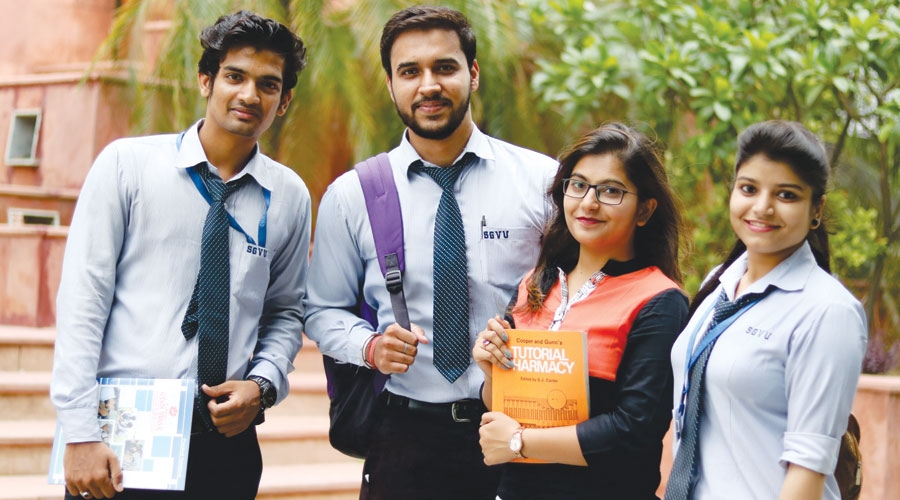
Aug 2025
Course Commencement Date
Scholarship
Up to 90% Scholarship for Girl Students
Duration
Course Type
Fee Amount
Bachelor Degree in Design/Fine arts/ Architecture from a recognised university and with minimum of 50% marks in graduation.
The Master of Design program spans a total duration of 2 years, divided into 4 semesters.
NIL
The Master of Design program at the Gyan Vihar Centre of Arts and Design (GCAD) is is a 2-year, full time, practice-based programme.
Students are trained in the methods, tools and approaches of design disciplines to creatively address complex social issues through participatory and collaborative design methods. Students are also introduced to entrepreneurial competencies and leadership to support them to establish their own enterprises while also providing internship opportunities in established organisations.
The areas of focus are Fashion and Lifestyle Accessories Design and Communication Design.
Programme Outcomes
Programme Educational Objectives
The overall objectives of the program:
Salient Features

The Suresh Gyan Vihar University, Jaipur is a renowned University, established by an Act of State Legislature in the State of Rajasthan by the Suresh Gyan Vihar University, Jaipur Act, 2008 (Act No. 16 of 2008). The University is ranked by NIRF-2024 in the Rank-Band of 101-150 with the School of Pharmacy at 49th rank, and also university appeared in the overall rank band for the first time in the rank band 151-200. It is due to the consistent effort of ensuring quality and ethics in our delivery that the SGVU has been granted an "A+" grade accreditation by NAAC, achieving a score of 3.32 out of 4. Furthermore, the university's agriculture program and college have received accreditation from ICAR for five years. Based in Jaipur, it is also one of the only few research-driven Universities in Rajasthan with DSIR-SIRO recognition. Other major program approvals includes PCI, UGC-DEB, RCI, BCI, NCTE and AICTE.
Apply Now